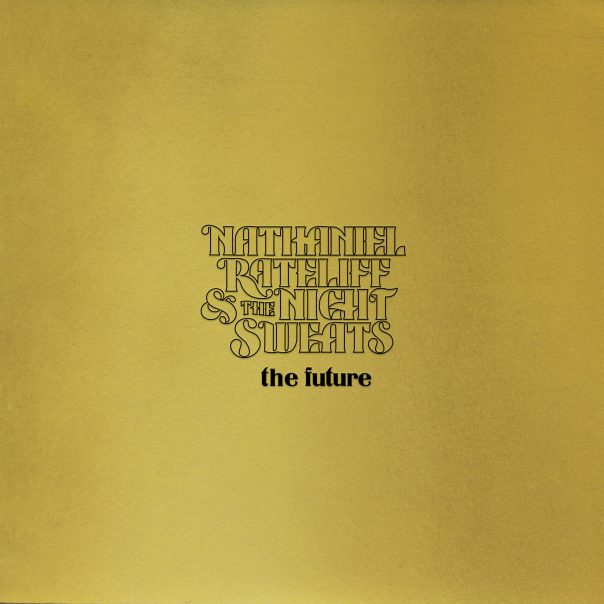Review: Nathaniel Rateliff and the Night Sweats mine the past on ‘The Future’

Nathaniel Rateliff and the Night Sweats, ‘The Future.’
Denver singer-songwriter Nathaniel Rateliff produced two of the most emotionally wrenching albums of the last decade in a two-year span. He followed Tearing at the Seams, the incredibly successful 2018 album with his backing band the Night Sweats, with his 2020 solo album, And It’s Still Alright. Both albums crackled with an emotional energy born of Rateliff’s musical catharsis, as he came to grips with childhood family tragedies, his problems with alcohol, his divorce and the loss of his friend and mentor Richard Swift.
The Future
Nathaniel Rateliff and the Night Sweats
Stax Records, Nov. 5
7/10
Now, Nathaniel Rateliff is returning with the Night Sweats for The Future, the band’s third studio album, recorded in his new Broken Creek Studio outside Denver. The Future feels almost like a tribute album, a collection of songs that celebrate the band’s influences from the worlds of rock, pop, soul and R&B.
The opening title track begins with acoustic and pedal steel guitars before Rateliff’s voice suddenly emerges, nasally and surprisingly Dylan-esque.
“Is the future open?/ Is the future seen?” he sings. Rateliff holds the syllable of the word “seen” with the resolute defiance of a young Robert Zimmerman. The title track ends with some honky-tonk piano, but doesn’t really feel like a Night Sweats song without some horn blasts. The song feels different from anything else in Rateliff’s oeuvre, a word he likely never imagined being applied to his musical output.
This departing from familiar territory and paying tribute to key influences on the first song sets the tone for the rest of the album. The Future sounds like a band at play, unleashed in a new studio and isolated because of the pandemic, exploring the musical influences it’s always loved.
“Survivor” sounds like The Black Keys, who of course sound like Howling Wolf and Muddy Waters and a huge swath of African American musical geniuses. Gritty guitar stabs slice over tubby bass. Rateliff’s characteristic wordplay feels strangely ominous as he sings with an understated, almost nonchalant melody, “I’m afraid that the weight of the world is catching up with you/ I’m afraid to admit that it’s catching up to me, too.”
The album’s best and most original moments arrive with Rateliff’s incisive lyricism. “Something Ain’t Right” begins with driving Beatles-esque piano as he sings, “Gotta dig a lotta holes to get into something deep.” Later in the song, he seems to comment on his newfound fame, offering, “Part of me feels I’ve arrived, but sometimes it don’t align.”
“Love Me Til I’m Gone” seems to have begun with the suggestion, “Let’s write something that feels like an old Van Morrison song off Moondance, or whatever.” The song’s electric piano and jazzy horn section percolate under Rateliff’s lounge-y vocal performance. During the song’s emotional conclusion, he pushes his voice into a gravelly howl, doubling the horn lines in a fairly obvious nod to Van Morrison.
The AM radio vibes of “What If I” feel like a nod to Elton John’s pop piano sensibilities. “Baby I Got Your Number” features sparse and jazzy nylon-stringed acoustic guitar a little reminiscent of “The Girl From Ipanema,” with a patina of urban hipster swagger. “So Put Out” sounds almost like an alternate take from the earlier track “Survivor,” with overdriven guitar stabs and thick horn lines also recalling artists like Dr. John and Swamp Dogg.
The Future closes with an obvious love letter to classic Motown with “Love Don’t.” Thumpy bass guitar anchors the nostalgic groove as Rateliff sings, “Love don’t treat you like that/ Babe, I’m letting you know.” The song grows in intensity until he has a Joe-Cocker-style vocal conniption fit/embolism as the band vamps over the song’s basic chord progression.
Nathaniel Rateliff’s meteoric rise over the past six years, from endless touring in a van and playing small shows, to performing on “Saturday Night Live” and opening for The Rolling Stones, has been at least partially fueled by the tragedies and challenges the 43-year-old had to face in his life. The Future is unique in Rateliff’s catalog because the album doesn’t smolder and ache with catharsis. Instead, it feels like a party where there’s something to celebrate.
Follow writer David Gill at Twitter.com/songotaku and Instagram/songotaku.
